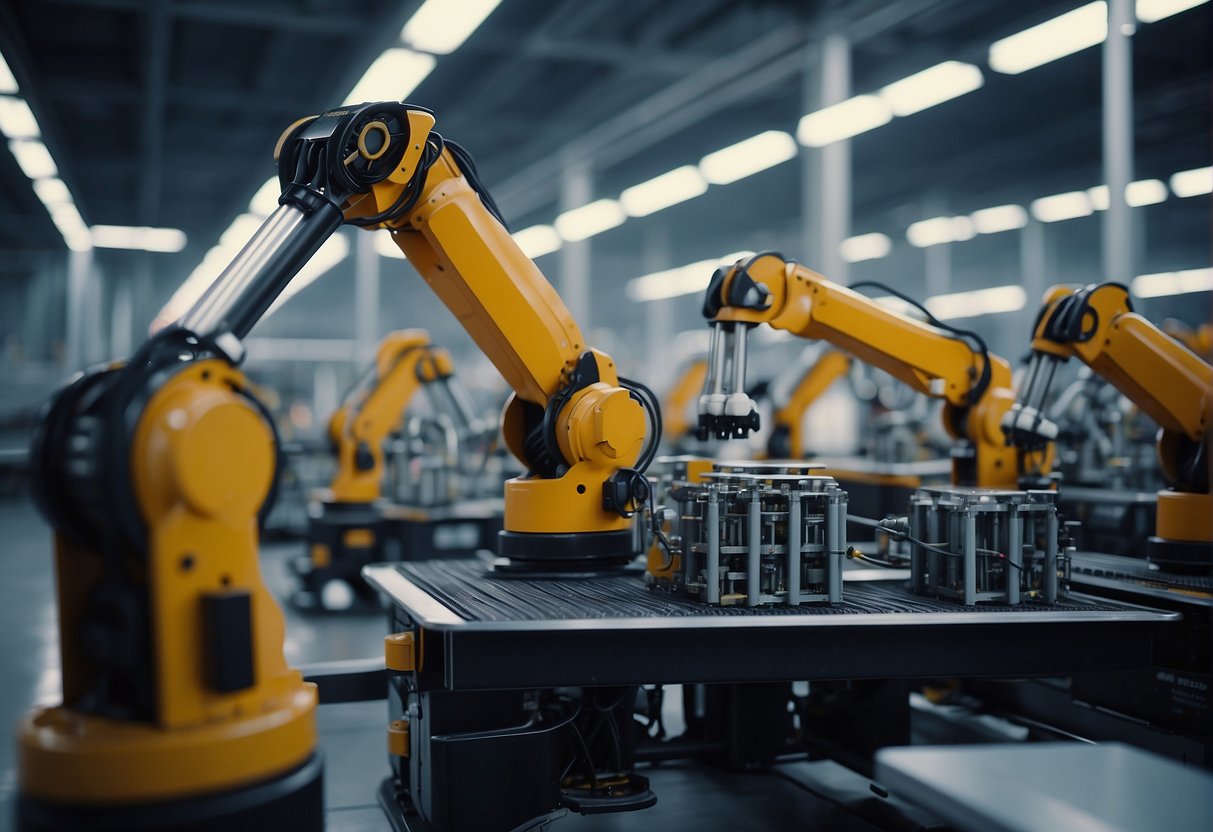The automotive industry has long been a driver of innovation, constantly pushing the boundaries of what is possible in terms of design, production and performance. However, in recent years, the industry has undergone a transformation, with the advent of artificial intelligence (AI) playing a major role in this shift.
AI is revolutionizing the way cars are designed and produced, enhancing vehicle capabilities, transforming the customer experience and optimizing supply chain and operations.
One of the key ways in which AI is transforming the automotive industry is through the revolutionization of design and production.
With AI, automakers can now leverage data to create more efficient and streamlined manufacturing processes, while also improving the quality and safety of their vehicles. AI-powered design tools are also making it easier for automakers to create more innovative and futuristic designs that meet the evolving needs of customers.
Advancing vehicle capabilities is another area where AI is having a significant impact on the automotive industry.
By leveraging machine learning algorithms, automakers are now able to create more intelligent and responsive vehicles that can adapt to changing road conditions and driver behavior. This is leading to the development of new features such as self-driving cars, which are expected to transform the way people travel in the years to come.
Key Takeaways
- AI is revolutionizing the automotive industry by transforming design and production, enhancing vehicle capabilities, and optimizing supply chain and operations.
- AI-powered design tools and data analytics are making it easier for automakers to create more efficient and innovative designs.
- By leveraging machine learning algorithms, automakers are creating more intelligent and responsive vehicles that can adapt to changing road conditions and driver behavior.
Revolutionizing Design and Production
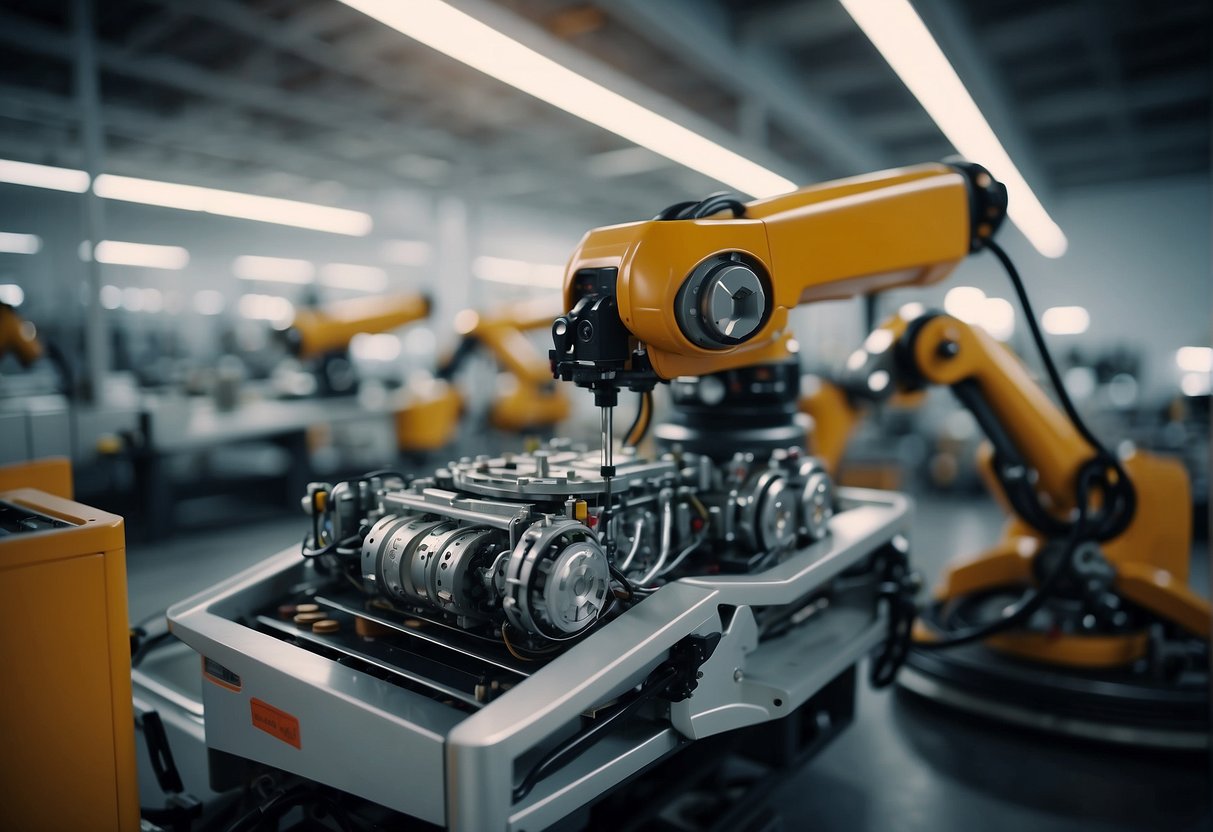
Artificial Intelligence (AI) has revolutionized the automotive industry by transforming the way companies approach design and production. AI has enabled the industry to streamline its processes, reduce costs, and improve efficiency.
Innovative Design Applications
One of the most significant impacts of AI on the automotive industry is its ability to generate unique and innovative designs. Generative AI, in particular, has become a powerful tool for designers, enabling them to create designs that were previously impossible.
With generative AI, designers can input their desired parameters and let the algorithm generate thousands of possible designs, each with its unique features and characteristics.
AI-powered design tools have also enabled designers to create more complex and intricate designs with greater ease. Machine learning algorithms can analyze vast amounts of data, such as customer preferences and market trends, to inform the design process.
This data-driven approach to design has resulted in more personalized and tailored products that meet the specific needs of customers.
Enhanced Manufacturing Process
AI has also transformed the manufacturing process in the automotive industry. Robotics and automation have become increasingly prevalent on factory floors, allowing for greater precision and efficiency in the production process.
AI-powered robots can perform tasks such as welding and painting with unparalleled accuracy, reducing the likelihood of errors and improving the overall quality of the final product.
Manufacturing processes have also been streamlined through the use of AI. The integration of AI into the production line has enabled companies to optimize their processes, reducing waste and improving efficiency.
Advancing Vehicle Capabilities
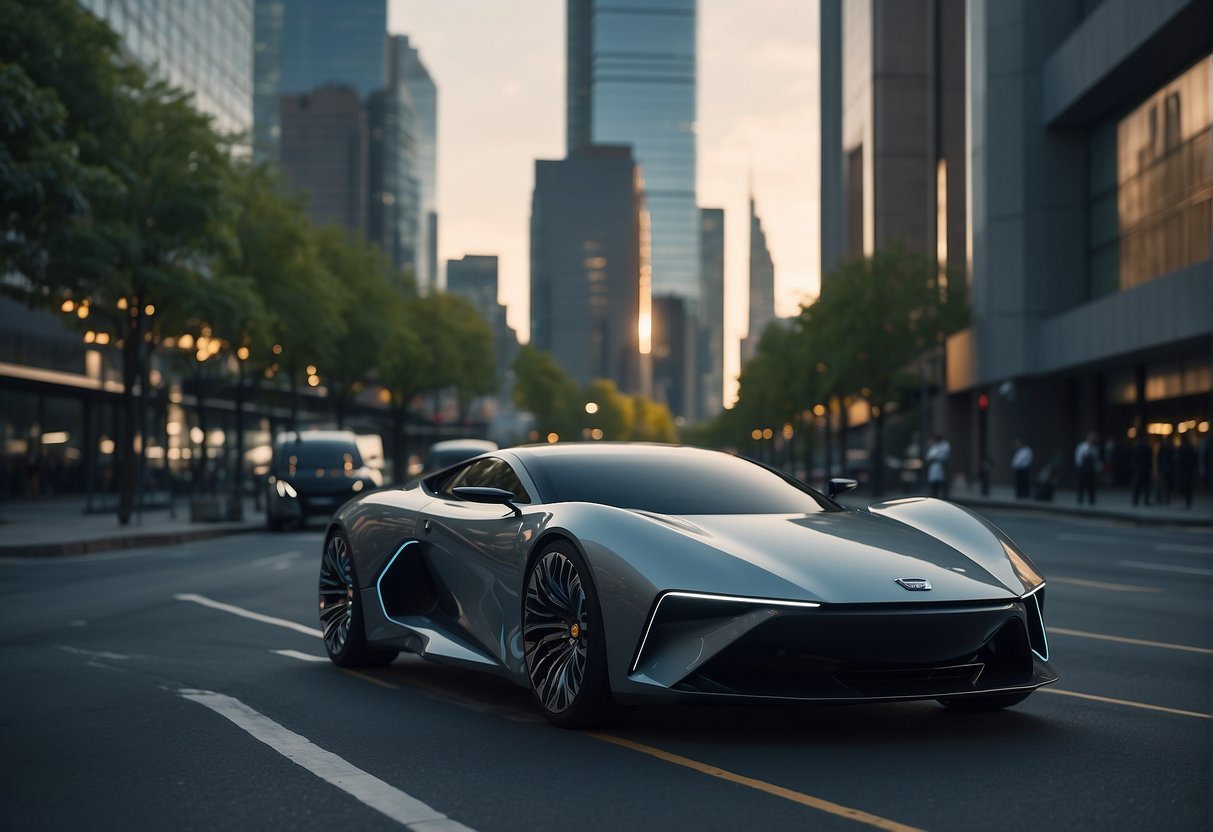
The automotive industry has been transformed by the integration of artificial intelligence (AI) into vehicle design and production. AI has enabled the development of new vehicle capabilities that were once thought impossible.
This section will explore two of the most significant advancements in vehicle capabilities: autonomous driving technologies and electric vehicles.
Autonomous Driving Technologies
Autonomous driving technologies are one of the most significant advancements in the automotive industry. With the help of AI, vehicles can now operate without human intervention.
This technology is still in its early stages, but it has the potential to revolutionize the way people travel. Autonomous vehicles use a combination of sensors, lidar, computer vision, and AI algorithms to navigate roads and avoid obstacles.
The safety benefits of autonomous vehicles are significant. They can reduce the number of accidents caused by human error, which is the leading cause of accidents on the road. Additionally, autonomous vehicles can provide mobility to people who are unable to drive, such as the elderly and disabled.
Electric Vehicles and Sustainability
Electric vehicles (EVs) are another significant advancement in vehicle capabilities. EVs use electricity stored in batteries to power their motors, eliminating the need for gasoline.
This technology has the potential to reduce greenhouse gas emissions and improve air quality.
AI has enabled the development of more efficient and sustainable EVs. For example, AI algorithms can optimize battery usage and improve charging times. Additionally, AI can help manufacturers reduce the environmental impact of EV production by optimizing manufacturing processes and reducing waste.
Transforming Customer Experience
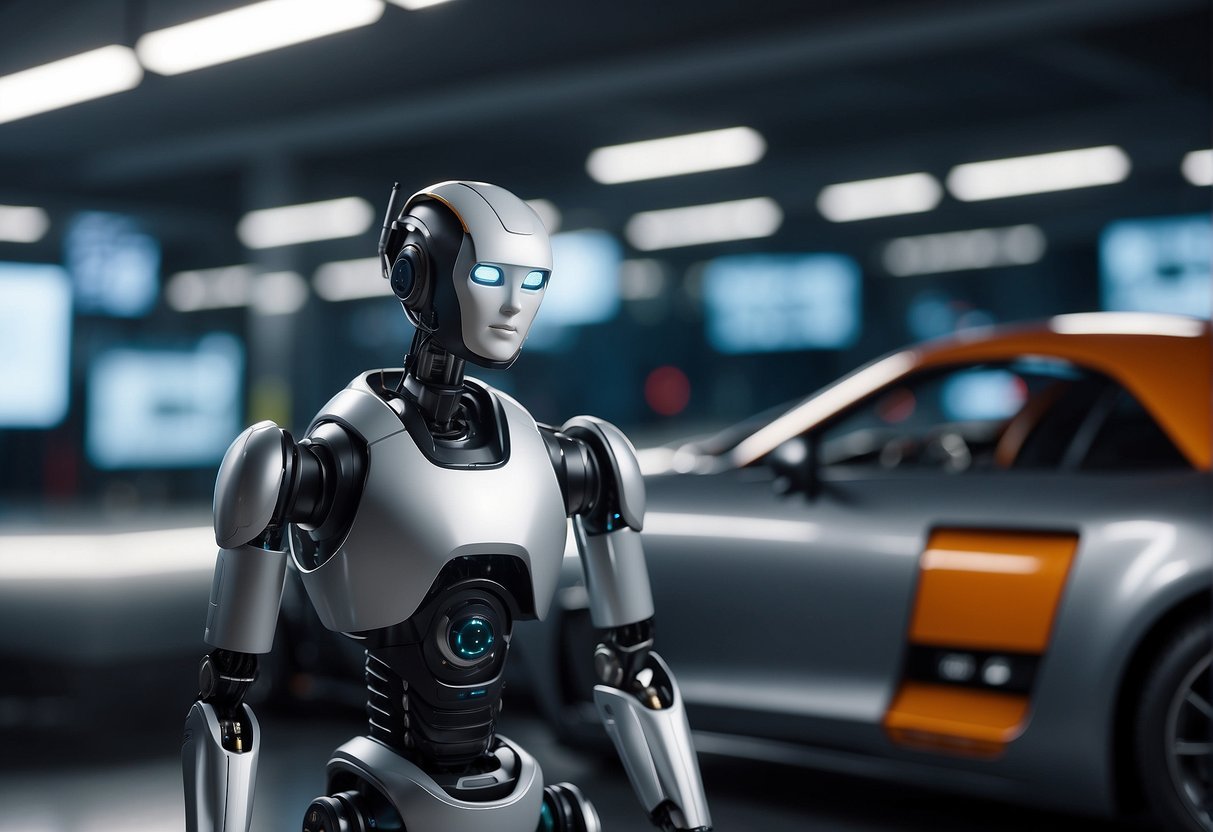
The automotive industry is rapidly changing as connected and autonomous vehicles – enabled by AI and machine learning – are transforming transportation to create a seamless and personalized experience for customers.
Personalization and Services
One of the most significant impacts of AI on the automotive industry is its ability to personalize the vehicle experience for customers. AI-powered systems can now analyze customer data to provide personalized recommendations for music, entertainment, and other services.
This level of personalization helps to create a more enjoyable and memorable experience for customers, leading to higher customer satisfaction and loyalty.
Moreover, with AI-powered predictive maintenance, customers can now receive alerts about potential vehicle issues before they become major problems. This helps to prevent breakdowns and ensures that customers can get the most out of their vehicles.
Safety and Connectivity Features
AI-powered safety and connectivity features are also transforming the customer experience in the automotive industry. Adaptive cruise control and automatic braking, for example, help to prevent accidents and reduce the risk of injury for drivers and passengers.
With AI-powered safety systems, customers can now feel more confident and secure while driving, leading to a more positive overall experience.
Furthermore, AI-powered connectivity features such as voice-activated controls and real-time traffic updates help to create a more seamless and convenient experience for customers.
Optimizing Supply Chain and Operations
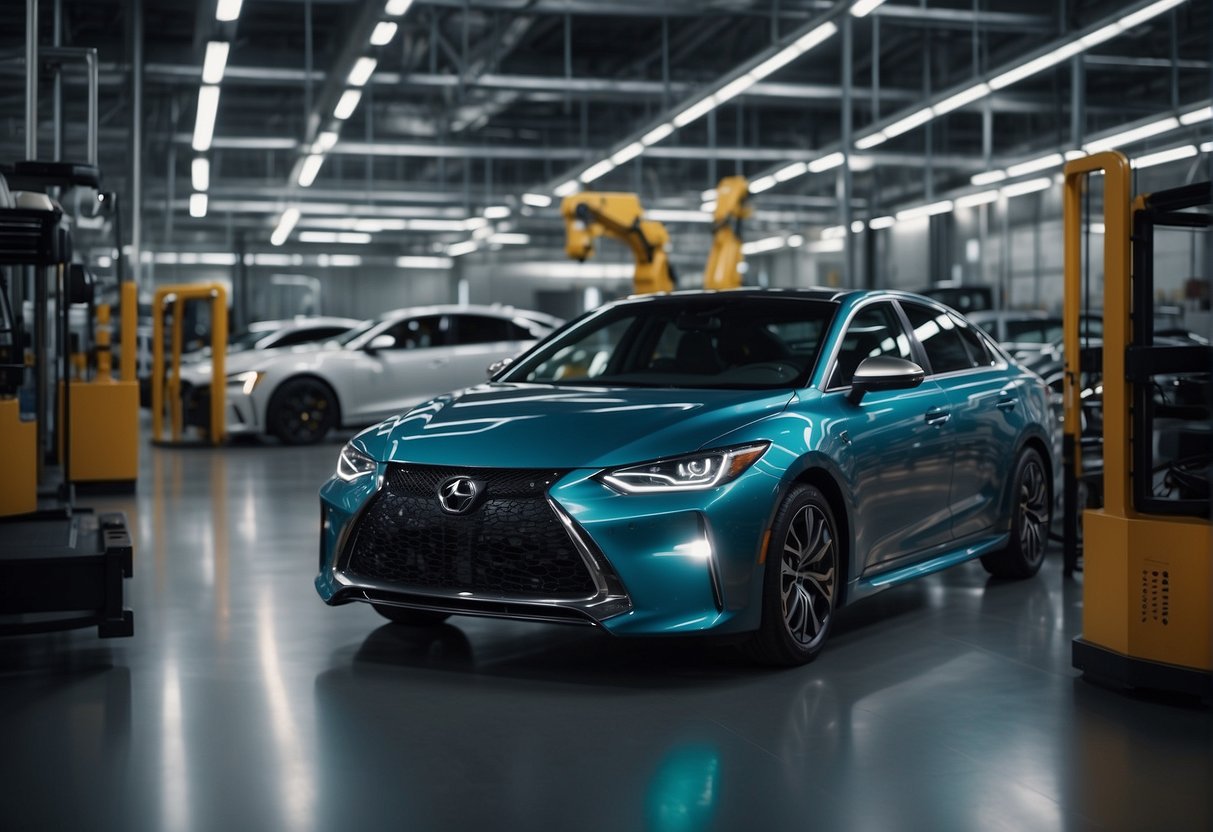
The application of AI in the automotive industry has had a significant impact on optimizing supply chain and operations. This has led to increased efficiency, reduced costs, and improved quality control.
Supply Chain Management
AI has revolutionized the traditional automotive supply chain management by optimizing manufacturing processes, reducing costs, and enhancing inventory management.
With the help of AI, manufacturers can predict demand, track inventory levels, and optimize logistics to ensure that the right parts are delivered to the right place at the right time.
This has helped to reduce supply chain costs and improve the overall efficiency of the manufacturing process.
Predictive Maintenance and Quality Control
AI is also being used to optimize predictive maintenance and quality control in the automotive industry.
By analyzing data from sensors and other sources, AI can predict when a part is likely to fail and alert the maintenance team to take action before the failure occurs. This helps to reduce downtime and improve the overall reliability of the manufacturing process.
In addition, AI is being used to improve quality control by identifying defects in products before they leave the factory. By analyzing data from sensors and other sources, AI can detect defects that might be missed by human inspectors. This helps to ensure that only high-quality products are delivered to customers.
Implications and Future Directions
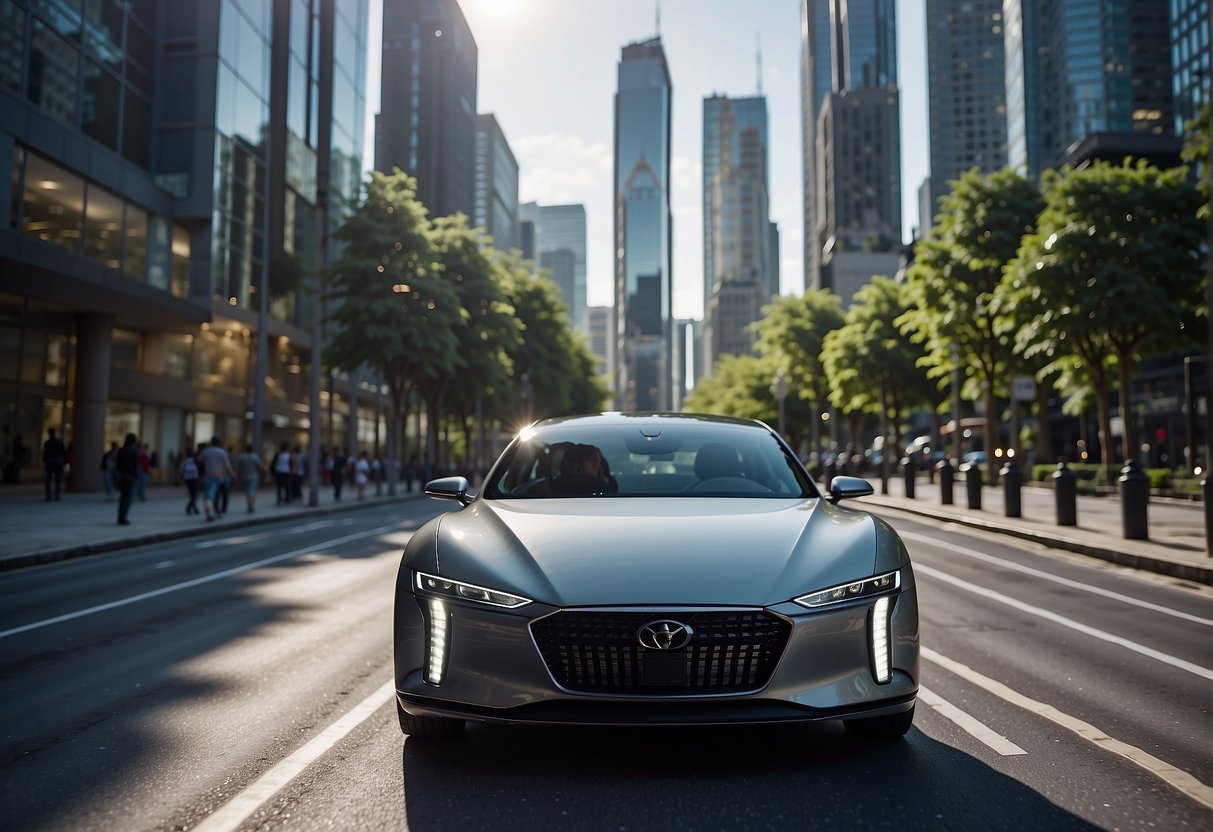
Regulatory and Ethical Considerations
As AI continues to permeate the automotive industry, regulatory and ethical considerations become increasingly important.
Regulations on AI use in the automotive industry are likely to become more stringent as the technology becomes more prevalent. This is particularly important when it comes to safety, as AI-powered systems must be thoroughly tested and homologated to ensure they meet safety standards.
In addition to regulatory considerations, there are also ethical considerations surrounding the use of AI in the automotive industry.
For example, there are concerns about the potential for AI-powered systems to discriminate against certain groups of people, such as those with disabilities or from certain ethnic backgrounds. As such, it is important for the industry to address these concerns and ensure that AI is used in an ethical and responsible manner.
Research and Development Trends
The use of AI in the automotive industry is still relatively new, and there is much research and development to be done.
One trend that is emerging is the use of generative AI (gen AI) in R&D. Gen AI has the potential to completely reconfigure how R&D teams operate, as it can generate and process language and imagery, integrate insights from various sources, and process information across multiple domains.
Another trend is the use of AI to optimize manufacturing processes, reduce costs, and enhance supply chain management.
Through the analysis of vehicular data and sales figures, AI enables the modeling and prediction of customer demand. This allows manufacturers to optimize production schedules and reduce waste.
Finally, there is a growing focus on sustainable practices in the automotive industry.
AI can play a key role in this by optimizing vehicle design and manufacturing processes to reduce environmental impact. For example, AI can be used to optimize the use of materials, reduce energy consumption, and improve recycling processes.

